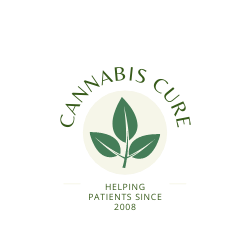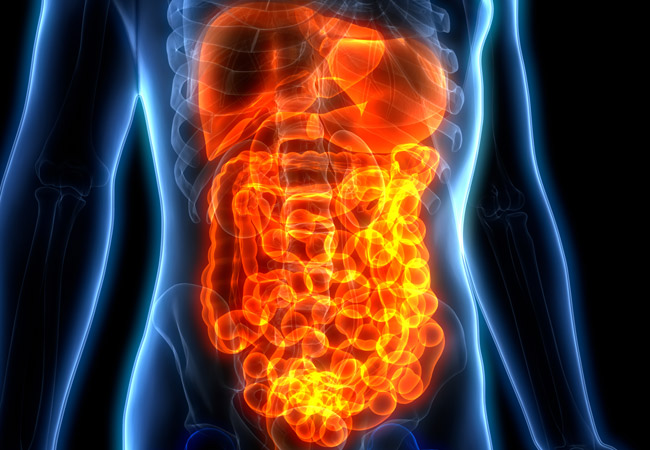Inflammatory Bowel Disease (IBD)
Inflammatory bowel disease (IBD) involves chronic inflammation of the digestive tract and presents an array of challenges for those living with the condition, from diarrhoea to fatigue, managing food and diet, and living with the emotional impact of having a long-term condition.
IBD tends to cover two main disorders that share similar symptoms but impact different portions of the gastrointestinal tract. Crohn’s disease is a chronic inflammation of the lining of your gastrointestinal tract, from the mouth to the anus, which affects around 115,000 people in the UK.
Ulcerative colitis occurs when the lining of your large intestine (also called the colon), rectum, or both become inflamed, producing tiny sores. It affects around 146,000 people in the UK.
What Are The Symptons?
Crohn’s disease symptoms range from mild to severe and include diarrhoea, cramps and general abdominal pain, nausea, fever, loss of appetite, weight, loss of fatigue, and rectal bleeding. These symptoms don’t tend to happen all at once and sometimes there can be none at all but in some circumstances, they can progress to include inflammation of the joints and skin, and shortness of breath due to anaemia. The inflammation caused by ulcerative colitis means the bowel can need to move its contents rapidly and frequently and sometimes these movements include blood and discharge. Other common symptoms include abdominal pain, fever, rectal pain, weight loss, and malnutrition.
What Are The Causes?
While researchers aren’t sure how Crohn’s disease begins or who is most likely to develop it, they believe that the immune system, genes, and environmental factors are at play in both. The Crohn’s & Colitis Foundation says that developing IBD is between 1.5% and 28% for first-degree relatives of an affected person. It also states that more than 200 genes have been associated with IBD and although research is still ongoing about what their exact role is, it is believed that these genes lead to an abnormal immune response to some environmental triggers and the inflammatory response becomes chronic. In terms of ulcerative colitis, it’s unclear why some immune systems respond by attacking the large intestines and not others, but it is people with Crohn’s disease are much more likely to require surgery, to remove damaged portions of the digestive tract or manage damaged tissue, than people with ulcerative colitis.
How Can Medical Cannabis Help With Inflammatory Bowel Disease?
Cannabis treatment for IBD patients has been shown to offer a better quality of life, increase the ability to perform daily tasks, and maintain a social life, with a drastic decrease in pain reduction and anxiety without accompanying side effects.
Studies have shown that the endocannabinoid system is involved in virtually all major immune system functions and that IBD patients tend to have more cannabinoid receptors in the tissue of the colon and are more likely to respond positively to the anti-inflammatory properties of medical cannabis treatment for Crohn’s disease and ulcerative colitis, especially within the gut.
In a 2011 study of 30 patients with Crohn’s disease, the researchers found that 21 of the 30 participants had symptoms that had significantly improved, and other medications were needed less, following medical cannabis use. Additionally, 15 of the 30 patients who had needed a total of 19 surgeries between them in a span of approximately 9 years before trying medical cannabis, needed only two total surgeries between them in a span of approximately three years after treatment with cannabis. Patients in the medical cannabis group claimed to have improved sleep and appetite without significant harmful side effects. Additionally, 3 of the 11 patients in the active treatment group were able to reduce or eliminate the use of their steroid medications. Participants in the study were randomly assigned two cannabis cigarettes daily. Some patients received a measured concentration of THC. The rest received a placebo from which the THC had been removed. The experiment lasted for two months, followed by two weeks of subsequent assessment. Forty-five percent of the THC subjects achieved complete remission and only ten percent of the subjects in the placebo group entered remission during the study.
A clinical response, defined as a drop in the Crohn’s Disease Activity Index (CDAI) score of more than 100, was achieved in 90% per cent of THC subjects. In contrast, only 40% of placebo subjects experienced this level of disease symptom improvement. The test subjects who took THC-rich cannabis twice daily reported improved appetite and sleep, and no significant side effects.
When using cannabis treatment for Crohn’s disease and Colitis the compounds found in the marijuana plant have been shown to play an important part in decreasing gastrointestinal inflammation. Patients with IBD suffer bouts of vomiting and diarrhoea that can result in malnutrition and weight loss
Studies have also found cannabis treatment for Crohn’s disease and Colitis can stimulate the appetite in affected patients, resulting in healthy weight gain and an overall improvement in symptoms.
Results of a survey published in ‘Digestion’ confirmed previous studies that after three months of cannabis treatment for Crohn’s disease and Colitis patients resulted in reports of weight gain and BMI.
They also reported improved general health perception, social functioning, ability to work, physical pain, and depression, and a reduced disease activity index (signalling improvement in the condition).
A study conducted in Israel in 2013 and published in the journal Clinical Gastroenterology and Hepatology revealed that 45% of human study subjects experienced complete remission of their Crohn’s after eight weeks of 115 mg of smoked THC per day. The Israeli study revealed no negative side effects of smoked marijuana. If a patient doesn’t wish to smoke cannabis, other methods of administration consumption avenues such as edibles or vaporisation work just as well.
Other Factors To Consider
A low-fat diet is beneficial with research suggests eating more low-fat foods, olive oil, and foods rich in omega-3 fatty acids may delay flares.
Vitamin C may have a protective effect on the intestines and people who eat diets rich in vitamin C, so spinach, peppers, and blackcurrants describe prolonged periods of UC remission. During remission, fibre can help you stay regular. It may also improve how easily you can void during bowel movements. Finally, make a food diary to track the foods you eat and how you feel after.
Further Reading
How and where to safely buy RSO medical cannabis oil online
Introduction to Medical Cannabis
Help and Advice
If you need advice or help with Medical Cannabis, please use the contact form provided. We try to answer all emails within 24 hours and are happy to help and advise on all aspects of Medical Cannabis treatments in complete confidence.
Disclaimer: Please note that whilst we consider ourselves subject matter experts regarding Medical Cannabis, we are not medical professionals. We are a Medical Cannabis information resource, educating and helping those in need. Whilst we are very strong believers in the benefits of Medical Cannabis, there is still limited evidence that Medical Cannabis can treat/cure all the illnesses we discuss on our website. We recommend you do as much research as possible, and where practical seek professional medical advice before proceeding with Medical Cannabis oil.

